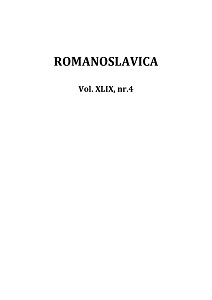Principiul (cognitiv‐) comunicativ în predarea limbii slovace studenţilor români
The (cognitive‐) communicative principle in teaching Slovak language to Romanian students
Author(s): Marilena-Felicia Luţă (Ţiprigan)Subject(s): Foreign languages learning, Language acquisition, Cognitive linguistics, Western Slavic Languages, Higher Education , Philology, Translation Studies
Published by: Editura Universităţii din Bucureşti
Keywords: communicative principle; Slovak language teaching; modern approach; Romanian graduate students; reading; writing; listening; communication skills;
Summary/Abstract: The aim of this paper is to highlight specific issues on the use of cognitive‐ communicative principle in teaching Slovak to Romanian students. This approach may facilitate the acquisition of language skills necessary for our students to master Slovak and reach a high level of linguistic performance, which will later on help them have a career in the translation field, for example. Due to Bologna reforms, the undergraduate studies at the Faculty of Foreign Languages and Literatures of Bucharest University were limited to three years. Given the fact that our students are expected to study Slovak as a foreign language starting with the alphabet, we believe that professors have the moral duty to seek the best solutions to reconcile qualitative and quantitative markers in a highly creative approach, meant to lead the students to linguistic performance and job satisfaction once they have graduated from university. We believe that the use of the communicative principle in teaching Slovak to Romanian students is one of the modern approaches that meets both the requirements of the labor market and students’ real needs. The Common European Framework of Reference for Languages became a benchmark in the field of foreign language teaching and learning, monitoring the level of language proficiency in the four distinct fields: listening, speaking, reading, writing. Based on this unitary language proficiency assessment scale, one may objectively evaluate the graduates’ linguistic competences enabling them to study, work a s and live in any European country in the context of labor market mobility.
Journal: Romanoslavica
- Issue Year: XLIX/2013
- Issue No: 4
- Page Range: 195-210
- Page Count: 16
- Language: Romanian

